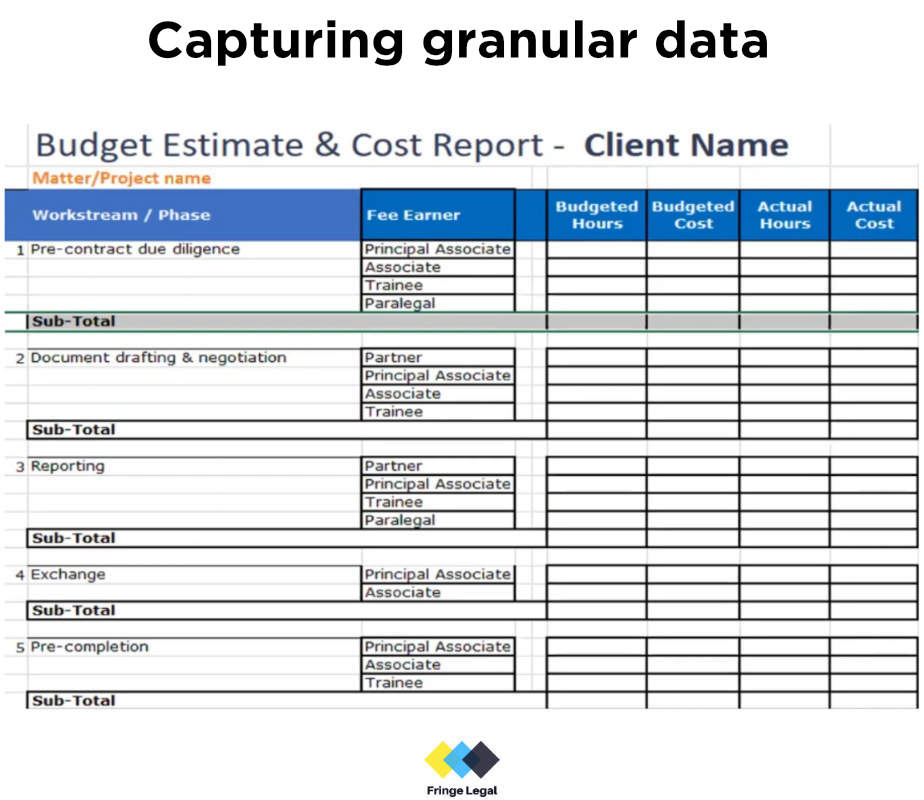
Making Legal Tech Profitable
As the adoption of niche technologies becomes more commonplace, there is increasing pressure to ensure the technology selected is useful and profitable. In other words, the firm has to justify the cost of innovative legal technology.
Key Factors in Making Legal Tech Profitable
When considering how to make legal tech profitable, keep in mind that the return on investment needs to be justified. There are three core components to this process:
- Identifying where improvements can be made;
- Improving the process; and
- Leveraging technology to enhance returns.
Legal Project Management: Identifying Where Improvements Can be Made
Legal project management (LPM), much like project management in any industry, is important in terms of plan and scope. The people, materials, and time involved impact delivery and the cost of legal services.
For years now, clients have been looking for price certainty and price transparency. Therefore, the management of that pricing, execution, and delivery monitoring is important.
You can apply traditional project management principles to legal project management. These include scoping, budgeting, delivering, monitoring, and evaluating the results once you have delivered.
A starting step here is to capture data at a granular level to understand the budgeted vs. actual cost of different workstreams. Whether the hours/costs are charged is less important at this stage – this is to build a model of the effort required to complete various stages of the work.

In the example above, we look at pre-contract due diligence, document drafting, reporting, exchange, and completion. Begin by breaking these areas into sufficient detail and then identify who is going to do the work. Next, you estimate how long it will take and the costs based on those people’s rates.
You can use this structure to provide an estimate and a plan to start for the client and report on progress going forward. As the example demonstrates, the data entry can be done using a simple spreadsheet or by leveraging legal technology such as Clocktimizer (screenshot below).
 The objective at this stage is to identify where the firm can become more efficient and profitable.
The objective at this stage is to identify where the firm can become more efficient and profitable.
Legal Process Improvement
There are several ways to demonstrate project overruns or underruns. Technology is useful for capturing and slicing data to see where the profitable aspects are. You can see where the inefficiencies are within each phase or task and where over or under-resourcing might be happening. This data can be used to help plan the next offering or piece of work.
A process mapping workshop is often a useful exercise to identify areas of improvement.
Process mapping involves sitting a group of lawyers and business professionals and walking through the full workflow in detail. You can map it out using sticky notes on a wall or a piece of paper, using tools such as Miro or Mural.
Challenge your current process and question how it can be changed. Combine the data captured at the LPM stage above to find opportunities to use technology to improve operations.
How can these areas be made more profitable? Classic project management methodologies like Lean and Six Sigma can help eliminate waste across multiple steps in the process. Lean is the creation of value and the elimination of waste across numerous process steps. Six Sigma helps to reduce variability in the process.
There are several signs that changes need to occur. Examples include when the process takes too long, there is too much wastage and over-resourcing, or the partner is doing the due diligence that’s no longer useful.
Legal Technology
Technology can be one of the tools in your toolbox to change the way you deliver legal services.
First, you need an evidence-based business case to show that profitability needs to be improved and justify legal technology investment.
Increased efficiency might mean that the number of billable hours will decrease, and profitability might improve. With fixed-price projects, you can deliver in fewer hours, retain more profits, and increase profits by taking on more work. With the advent of machine learning and artificial intelligence, firms can save time on tasks that are usually done by juniors.
Legal services can be delivered more effectively through the digitization of the delivery of legal services. This takes the paper out of the process and allows the client to give instructions through an online portal. Services can be delivered almost entirely online and without several pieces of paper that need to find their way around to different people to sign.
Transforming Your Legal Service Delivery – Where to Begin?
Leverage the data in your practice management or time recording system to analyze themes that emerge. There are tools available to help visualize the data by looking at text narratives and auto-categorizing activities to create a better picture of the firm’s work.
For firms that do not have a staff legal technologist, the accounting and finance teams are key. Looking at financial data is an important step to making legal tech profitable. Finance does not necessarily come naturally to lawyers. Having someone who can extract the necessary data from an accounting or practice management system will give you a head start.
When bringing in any legal technology, you need to have a clear idea of how you plan to benefit. This requires an analysis of resource cost, price, and comparison between what you are charging and what it costs to deliver.
Implementing new systems and technologies relies on the willingness of others to adopt them. This involves actively listening to peoples’ input, resulting in a truly collaborative effort amongst the people in your firm.
This article was inspired by the author’s conversation with Mark Collins, Senior Legal Technologist at Eversheds Sutherland. Some of the visuals have been adapted from the presentation Mark gave at the Fringe Legal Virtual Summit.






